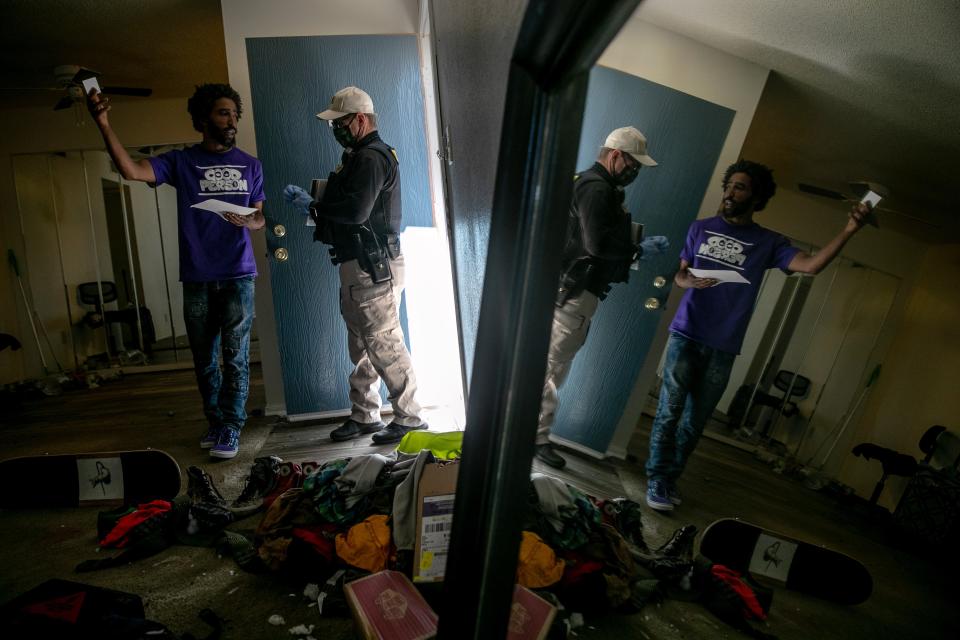Supreme Court permits federal eviction moratorium to remain in place
- Oops!Something went wrong.Please try again later.
- Oops!Something went wrong.Please try again later.
- Oops!Something went wrong.Please try again later.
WASHINGTON – The Supreme Court on Tuesday allowed a federal moratorium on evictions imposed in response to the coronavirus pandemic to remain in place.
Without comment, the court declined to take up an emergency appeal from the Alabama Association of Realtors and other groups, who had argued the Centers for Disease Control and Prevention exceeded its authority by imposing the moratorium last fall.
That means a recent ruling from the U.S. Court of Appeals for the District of Columbia Circuit keeps the moratorium in place while the suit works its way through the courts.
Four of the court's conservatives, Associate Justices Clarence Thomas, Samuel Alito, Neil Gorsuch and Amy Coney Barrett said they would have blocked the moratorium.
The move came days after the Biden administration extended the moratorium another 30 days, through July 31. Officials told the court that the CDC did not intend to extend it again after the end of next month.
Associate Justice Brett Kavanaugh, in a concurring opinion, said he believed that the CDC exceeded its authority with the nationwide moratorium. But, he wrote, that because the agency has signaled it will end the freeze "in only a few weeks" and because "those few weeks will allow for additional and more orderly distribution of the congressionally appropriated rental assistance funds" he would vote to keep it in place.

As coronavirus took hold in the United States last year and millions of Americans lost their jobs, Congress approved a ban on landlords evicting tenants as part of its economic response. That congressionally-approved ban on evictions expired in July and President Donald Trump's CDC imposed its own moratorium in September.
President Joe Biden extended the freeze in March over objections from landlords, property managers and others who said it was causing financial hardship and infringing their property rights.
Acting Solicitor General Elizabeth Prelogar told the Supreme Court that federal law gives the Department of Health and Human Services broad power to enact regulations that "are necessary to prevent the introduction, transmission, or spread of communicable diseases."
A district court judge decided to lift the freeze last month, finding that the federal government had exceeded its power. But the judge in the case stayed the order, allowing the eviction ban to remain in place. The real estate groups appealed that stay, bringing an emergency request to the nation's highest court.
This article originally appeared on USA TODAY: Supreme Court: Federal eviction moratorium will remain in place

